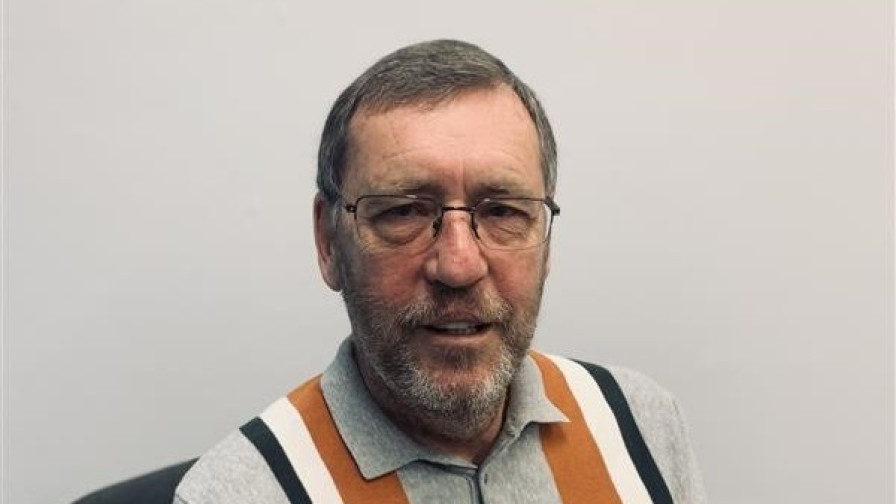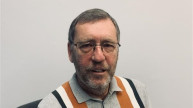Dave's Story
“Combat Stress has given my wife and I our life back.”
Army veteran Dave had a prestigious 36-year career. However, years after leaving the military he found himself plagued by nightmares and hallucinations. Here he shares how our mental health treatment changed his life.
Dave was 19 when he joined the Royal Signals, motivated to join the forces by a love of fitness. He enjoyed Army life, particularly the friendships that he made. “The best bit for me was the comradeship,” he says. “It’s that close bond you have with people that you’re working with and invariably living with. It’s not a job, it’s a lifestyle.”
During Dave’s career he experienced lots of incidents that stayed with him. “The ones I remember most were in Northern Ireland,” he says. “I saw a minibus blown up with my friends in and there were shootings.
"You feel responsible or guilty, but so much was wrapped into the job and the work that it didn't affect me. It wasn't until much later that I had any difficulty with it.”
Dave rose up the ranks and was commissioned in 1999. As he became more senior, he found that the feeling of pressure also grew. “As I got older and more senior, I found the stress levels started to really ramp up,” he says.
“Especially when you’re in the UK and you're supporting soldiers who are deployed abroad in a war or somewhere difficult for them – you want to offer them the best support you can as you feel a responsibility but you need to remember that you're not deployed and can’t work all the time, you need to go home to your family. You can end up with burnout, so you need to find a balance.”
Dave retired from the Army in 2015, following a long and distinguished career. He spent the next few years teaching maths to military pupils but then in 2020 the Covid-19 pandemic hit.
“Like lots of people in the country I got Covid during the first lockdown,” he says. “I noticed several physical things that were happening. I was breathless, but it was more like a panic attack.
"Then I started to have intrusive memories about things from Northern Ireland. I was having nightmares and became more and more hypervigilant - a car door closing would make me leap out of my skin. I was hallucinating – I’d see a road sign but it would change to the name of a road in Northern Ireland.”
Dave’s symptoms grew worse as lockdown continued. “It was very difficult to have conversations and look my wife Shirley in the eye because I was always looking around everywhere,” he says. “It became even more distressing when I started having difficulty forming sentences. I didn't know what was going on and was becoming more and more frustrated because I couldn't find the words.
“Shirley and I thought it was early onset of some brain disease. We’re really lucky that we have a massively strong bond. There was never any question that we weren't going to continue together, but we sat down and she said, ‘there is something wrong. Go and see the doctor because it's this isn’t a nice way to live’.”
Dave went to the doctor in 2022 to get some answers and was told he had PTSD. He was referred for treatment on the NHS but was told after one session that his PTSD was too severe for the clinician’s experience. He was given the numbers of some other organisations that could help, one of which was Combat Stress so he called our Helpline.
Dave had an assessment and from there took part in weekly group sessions to help him better understand what PTSD is. After that he took part in art therapy, which Dave connected with. “It's a way of communicating for those who struggle to say whatever it is they need to say,” he says. “When I had a picture in front of me that I had created, I was able to go much deeper into what I was feeling. I found that really helpful and at the end of those sessions I felt ready for face-to-face therapy.”
Dave undertook our intensive treatment programme, which included a three-week residential element at our England south hub in March 2024. “From the moment I went through the door, it was obvious that people had spent a lot of time tailoring my programme for my needs,” he says. “I was worried that I might still have a cognitive disease, as I hadn’t been tested for any. I felt it needed to be tested and pushed aside because it was on my mind and I wanted to be able to focus on the other activities. So pretty much on day one I was assessed - and I passed.”
Over the course of the of the next three weeks Dave underwent intensive treatment. “It was it was a fabulous experience,” he says. “I'm not a particularly religious person, but it almost felt spiritual.
“Combat Stress is the most professional organisation that I've ever worked with in my entire life. There wasn't a single person in that building that wasn't focused on me and the rest of the people in my group. Nothing was too much trouble.”
Dave has now completed treatment and no longer has any PTSD symptoms. “Shirley and I continue to do the things that we want to do,” he says. “We like to go out walking and before it was quite difficult, because there was always a distance between us - which was PTSD - and that’s not a lot of fun. Now more recently, we can chat, we can plan things together and that’s fantastic.
“Combat Stress has given my wife and I our life back.”
September 2024


